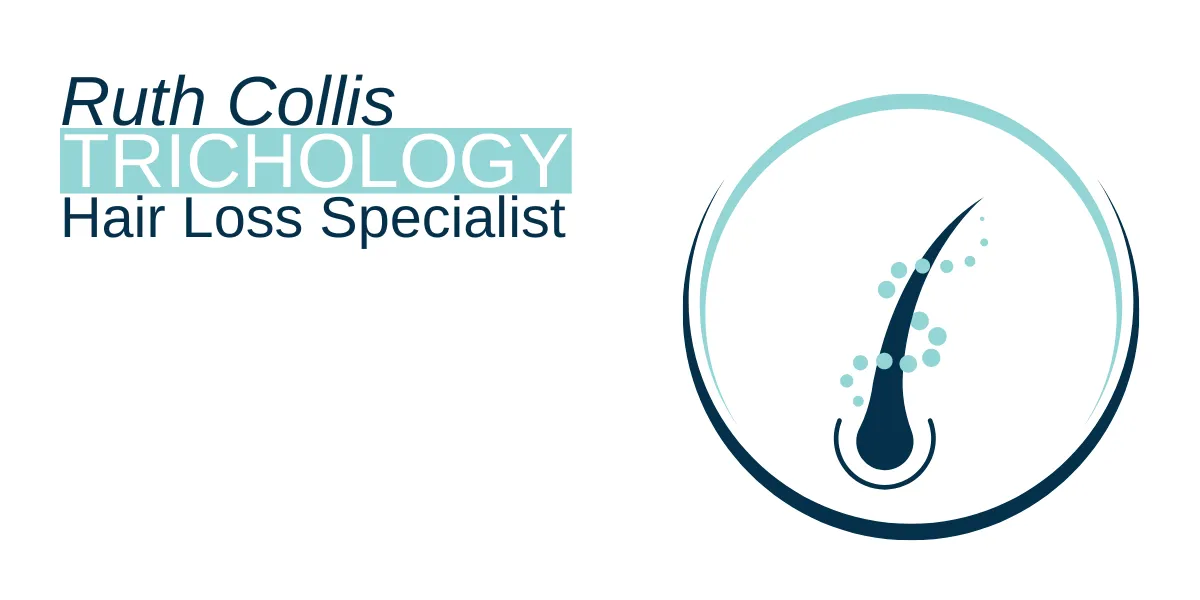

Menopausal Hair Loss: Understanding and Addressing the Changes
Menopausal Hair Loss: Understanding and Addressing the Changes
Do I Have Menopausal Hair Loss?
Have you ever woken up one day and realised that your hair is noticeably thinner, drier, frizzier, or a combination? During menopause, oestrogen and progesterone levels drop and wreak havoc on our hair. Thick, smooth, shiny locks suddenly become thin, dry, and frizzy, with a dull grey appearance.
Recognising Menopausal Hair Loss Symptoms
Menopausal hair loss presents with various symptoms, often subtle at first but gradually becoming more noticeable. Look out for signs such as:
Loss of volume
Difficulty styling or maintaining a style
Increased hair shedding (more in your brush, plug hole, and blocking your hoover)
Wider parting
More visible scalp
Receding hairline
Hair breakage and textural changes
Thinner ponytail requiring more turns and twists of your hair band
Old photos revealing thicker, more luscious, and longer locks than your current hair
These changes can significantly impact your confidence and self-esteem.
Understanding the Hormonal Impact
During menopause, hormonal fluctuations play a significant role in hair health. Declining oestrogen levels, in particular, can lead to thinning, loss of volume, and changes in hair texture. Additionally, fluctuations in progesterone levels can result in heavier and more frequent periods, potentially leading to deficiencies that further increase hair loss. It's essential to recognise these changes and their effects on hair follicles.
Does Hair Loss from Menopause Grow Back?
Contrary to popular belief, menopausal hair loss is not always permanent. Understanding the underlying causes and seeking appropriate interventions can often slow or reverse the effects of hormonal changes on your hair. With the right approach, there's hope for regrowth and restoration.
How Can I Stop My Hair from Falling Out During Menopause?
Early diagnosis is paramount in effectively managing menopausal hair loss. Correct treatment can often halt or even reverse hair loss, while unchecked or incorrect treatment may lead to permanent damage. It's crucial to thoroughly assess medical history and medications to ensure safe and effective treatment options.
What Does Menopausal Hair Loss Look Like?
Menopausal hair loss often manifests as diffuse thinning, increased shedding, and noticeable changes in hair texture and volume. These changes can be particularly evident at the hairline and parting, where hair may become sparser and more brittle.
What Are Menopausal Hair Loss Treatments?
Effective treatment options for menopausal hair loss include Platelet-Rich Plasma (PRP) therapy, in-clinic bespoke electrotherapy, scalp therapies, and targeted nutritional interventions. PRP therapy stimulates hair growth and thickness, protects follicles from premature shedding, and promotes overall scalp health. Bespoke scalp treatments, including red light therapy and high-frequency treatments, enhance blood flow and oxygenation, supporting hair follicle function.
Optimising Nutrition and Lifestyle
A balanced diet rich in essential nutrients, including protein, Omega-3 fatty acids, and vitamins, is crucial for hair health. Regular exercise, stress management techniques, and mindfulness practices contribute to overall well-being, supporting healthy hair growth from within.
Patient Testimonials
Here's what one of my patients had to say about their experience: "I didn’t really know what to expect as I’d not seen a trichologist before, but Ruth instantly put me at ease. She is so knowledgeable and explained everything she was doing during the consultation, and asked lots of pertinent questions about my health and lifestyle. I found it fascinating and I’ve come away feeling so much more optimistic and motivated to make some lifestyle changes and pursue some treatments for my hair through Ruth. There’s hope at the end of the hair loss tunnel, and that hope looks like Ruth!"
The Importance of Early Intervention
Early and accurate diagnosis is key to effectively managing menopausal hair loss. By addressing the root cause and implementing targeted treatment strategies, there's a greater chance of regrowth and restoration. Remember, your hair journey is unique, and with the right support and guidance, you can embrace healthier, happier hair.
Conclusion
Menopausal hair loss is a common concern for many women, but it doesn't have to be permanent. By understanding the signs, seeking early diagnosis, and exploring appropriate treatments, you can take control of your hair health and restore your confidence.
Ready to take the first step towards healthier hair? Book a consultation with me today at https://ruthcollistrichology.book.app to receive a comprehensive diagnosis and bespoke treatment plan tailored to your specific needs and hair loss concerns. Don't wait any longer to reclaim your confidence and achieve the vibrant, healthy hair you deserve.
